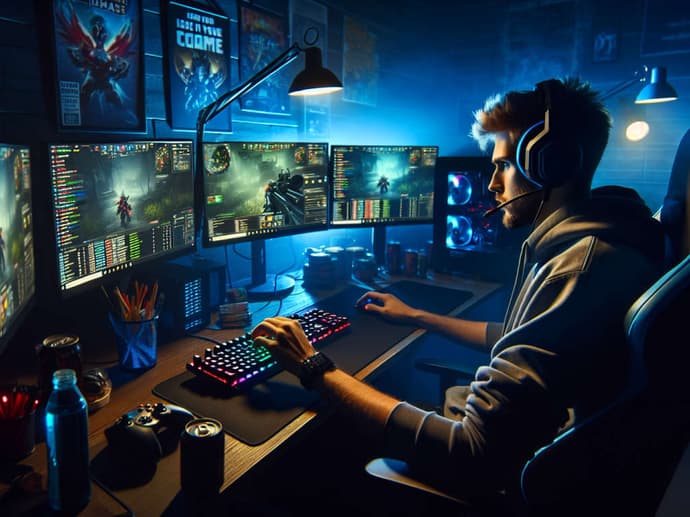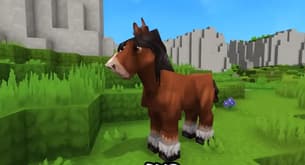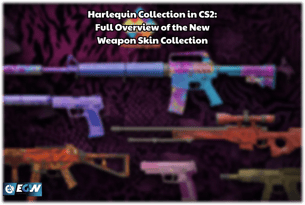What Every Gamer Needs to Know About Doxxing and Online Harassment

The gaming community is a dynamic and unique space where players from all walks of life come together to share experiences and compete. Games that bring them close together, often forming life-long friendships, can also bring the darker side of the internet. Doxxing and online harassment have been on the steady rise for years before anyone took notice. It was vastly dismissed as quarrels and misunderstandings between players in a heated environment that online gaming usually provokes. However, doxxing attacks have become increasingly threatening and gamers need to be informed about how to protect themselves and what to do if they fall victim to harassment.
Doxxing can include anything from full names, addresses, phone numbers, email addresses, workplace details, and even social media accounts. Every data, including photos and videos posted online, can be revealed to the broader public drawing unwanted attention and violating personal information. The purpose, obviously, is to harm or intimidate the individual targeted. In the gaming community, doxxing has been used as a weapon to destroy someone’s personal and professional life. This retaliation method stemmed from minor disagreements while playing the game which in time blew out into a full-on attack on a person. Protecting identity has become a challenging task since every gaming platform is asking for sensitive information when creating accounts leaving gamers at the mercy of websites’ security measures.
It’s not only doxxing that poses a threat. Verbal abuse, trolling, and swatting - sending police to someone's address - are recognized as online harassment. Simple insults and offensive language can quickly escalate especially among professional gamers with a huge following where fans can turn on the gamer and sway towards rivals. Using strong passwords and customized privacy settings can be a great alternative. However, gamers who stream on platforms like Twitch or YouTube should take extra precautions to avoid revealing the location. Using a delay feature in live streaming might be a good option to prevent people from tracking the movements of the gamer at any time. Reporting online abuse to the platforms could have some positive impact on getting rid of the malicious content while serving as a warning to anyone else who thinks that such behavior will be tolerated.
In recent years, lawmakers have been working on imposing severe penalties on those who engage in online harassment. It’s still not globally accepted, so always check if it applies to your region. If possible, victims should consider reaching out to law enforcement if they believe their safety is at risk. Legal action can also be taken against those responsible for doxxing or harassment, depending on local laws.
Regardless of their rivalry, gamers stand united in combat against online trolls and attackers. The whole gaming community took it upon themselves to create a safer and more inclusive environment while recognizing doxxing and online harassment as real and serious problems. Many victims have struggled with depression and anxiety after suffering online mistreatment. The consequences are long-lasting, and the stress of maltreatment sometimes forever changes the way people enjoy their hobbies. Mental health has been the priority in gaming circles in order to keep the passion for gaming while maintaining a nourishing and wholesome environment.

Elen Stelmakh is a creative individual dedicated to advancing gaming culture through articles and visual design. As a full-time EGamersWorld author and designer for a gaming website, Elen not only creates content but also infuses it with energy and creativity.
 Hytale Weapon Crafting Recipes: Types & TiersHytale all weapon crafting explained with full weapon tables, showing tiers, handling, and exact crafting recipes.
Hytale Weapon Crafting Recipes: Types & TiersHytale all weapon crafting explained with full weapon tables, showing tiers, handling, and exact crafting recipes.
 Hytale: Where to Find a Horse?How to get a horse in Hytale explained: where horses spawn, how riding works, and what the game currently allows.
Hytale: Where to Find a Horse?How to get a horse in Hytale explained: where horses spawn, how riding works, and what the game currently allows.
 Achroma Collection in CS2: Full Overview of the New Weapon Skin CollectionValve introduces the Achroma Collection in CS2 Season 4. Check out the full list of weapons and skins you can obtain via weekly drops in the January 21 update.
Achroma Collection in CS2: Full Overview of the New Weapon Skin CollectionValve introduces the Achroma Collection in CS2 Season 4. Check out the full list of weapons and skins you can obtain via weekly drops in the January 21 update. Harlequin Collection in CS2: Full Overview of the New Weapon Skin CollectionA complete overview of the CS2 Harlequin Collection, introduced in the January 21, 2026 update. Check out all included weapon skins and how to get them.
Harlequin Collection in CS2: Full Overview of the New Weapon Skin CollectionA complete overview of the CS2 Harlequin Collection, introduced in the January 21, 2026 update. Check out all included weapon skins and how to get them.

